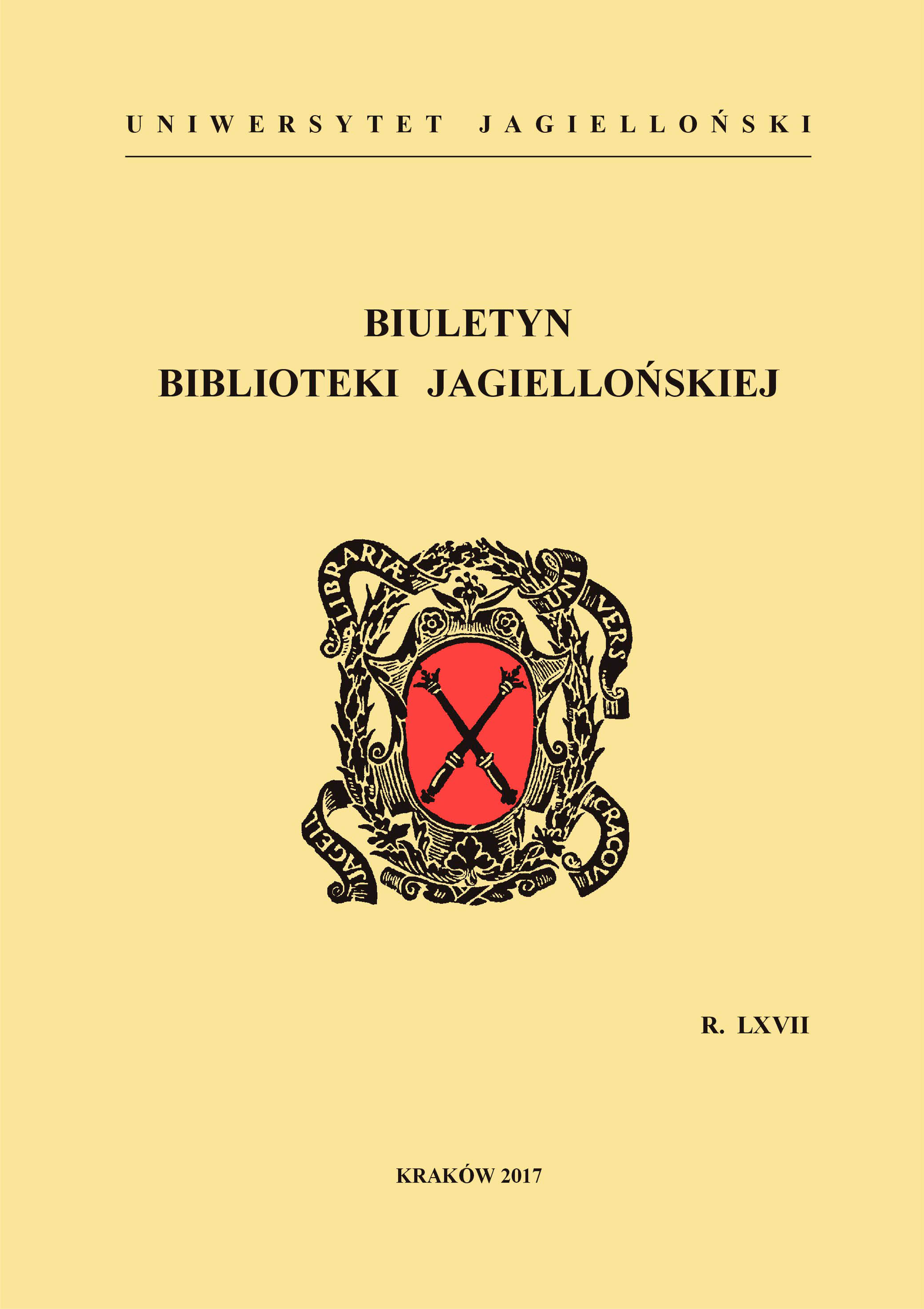Retoryka włoska w rękopisie z sygnaturą 126 ze zbiorów Biblioteki Jagiellońskiej
Italian Rhetorics in the Manuscript No 126 from the Collection of the Jagiellonian Library
Author(s): Anna HoreczySubject(s): History
Published by: Biblioteka Jagiellońska
Keywords: rhetorics;Jan of Ludzisko;speeches;letters;manuscript;humanism
Summary/Abstract: The present article contains an analysis of the rhetorical texts which are to be found in a fifteenth-century manuscript held by the Jagiellonian Library (shelfmark 126). This collection was probably copied from a codex brought to Cracow from Italy by Jan of Ludzisko, who studied medicine in Padua from 1430 to 1433. It consists of humanist and mediaeval texts (mainly speeches and letters) and clearly served as a model for the speeches which were written both by Jan himself and by his pupil Piotr Gaszowiec. An analysis of the full texts (and not only of the incipits) allows us to identify the hitherto unknown authors and/or the time and place of origin of some of these works. This in turn shows that the texts in the collection are divided into certain sections, some consisting of works by the same author (e.g. the speeches of Cristoforo Barzizza or the panegyrics of Bernardo Messalta) and some of speeches meant to be delivered on particular occasions (e.g. praising the sciences or mourning someone’s death). Apart from very popular fifteenth-century texts such as Andrea Giuliano’s speech for the funeral of Emanuel Chrysoloras, the collection also includes Italian rhetorical texts which had hitherto been known only from the Cracow manuscripts. An analysis of the manner in which the works are arranged within the volume in question allows us to distinguish certain “packages” of texts that are also present in other European manuscripts. Most of the texts which are included in this collection came into existence in circles having connections with Padua and Venice, but some of them were written during the Council of Constance by the outstanding Florentine humanists Poggio Bracciolini and Leonardo Bruni. For this reason, Ms 126 makes it possible to carry out research on the reception of Italian intellectual culture as well as on the very process of the transmission of Italian patterns of writing to Cracow circles. It also proves that the circles of Padua and Venice served as important intermediaries or ‘filters’ in the process of the transmission of Italian patterns to Cracow.
Journal: Biuletyn Biblioteki Jagiellońskiej
- Issue Year: 2017
- Issue No: 67
- Page Range: 29-75
- Page Count: 75
- Language: Polish

